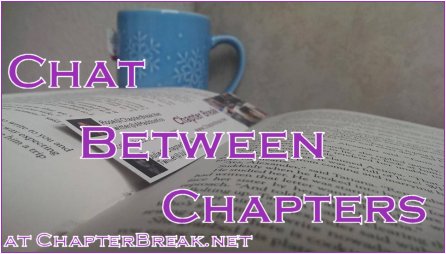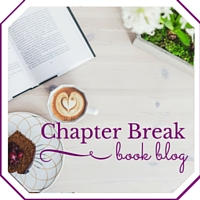
Grammar
![]() Julie:
Julie:
Being ESL, I admit that I’m not a grammar expert. That being said, most of the time I can tell if something is not grammatical and if it sounds wrong to me it usually bothers me. This is especially true in books. If I can tell there are mistakes left and right, that shows me the author failed to hire an editor, and that is just unforgivable. If *I* notice errors, everyone else should too. I get that when you’re the writer you’re probably too close to see errors – so that’s why a professional editor is so important. Don’t skimp out people!
![]() Rose:
Rose:
Grammar is not really as big of a deal as people make it out to be. The real purpose behind grammar is simply to make sure that you are understood. In order to be understood every language has its own accepted conventions. This is what grammar really is. That being said however, I think that people do tend to unintentionally judge based upon grammar. I mean, if I am reading a book and there are grammar mistakes all over the place, I am immediately less interested in reading on. I have noticed that if the author did not take enough time to have someone else proof read their manuscript, I tend to find that the plot is also rushed and the characters underdeveloped. I find grammar even more difficult to abide by today than I did whenever I was in college and I think that is because of social media. It is acceptable to shorten words in texts and facebook posts, but these abbreviated versions are NOT acceptable in a professional use and that can get confusing as you often times do not even noticed when you do it. One example is the word “probably.” Whenever I am texting someone, I type “prolly” because that is how I say it and it is shorter. I find that in my email correspondence to teachers and various professional entities, I am using these types of “short hand” vernacular. YIKES!



[…] on a True Story. And you can’t go wrong with the discussion posts from Chapter Break! Last week they were discussing grammar- one of my favorite […]
I think I am OK with grammar oddities if the author does it intentionally. There are a lot of great books that have pushed the grammar envelope and even started an entirely new style of communication! But if an author simply neglected to hire a proofreader- then yes. I won’t like the book. Often, lazy grammar in a book is enough to turn me off completely no matter how interesting the plot. Thanks for linking to Quote Me Thursday!
Brenda @DailyMayo recently posted…12 Epic Songs Inspired by The Hobbit
You’re right, being unique and creative is very different from just being lazy 🙂
Ugh, I HATE seeing grammar or spelling mistakes in books! Especially published books! You know how many people work on a single book at a big publishing house? There should be no errors!! This really frustrates me.
Being an editor, I know I am extra picky about these things. I don’t understand why self-published authors often decide they don’t need an editor. Even if I – an editor – wrote a book, I would still hire an outside editor. Even authors with excellent editing capabilities need an outside pair of eyes. Like you said, Julie, writers are too close to their work and have probably read it over several times. It’s easy to miss mistakes when you’ve read something over and over however many times.
Ooh great words coming from an editor. Some people just don’t seem to realize how important a polished final product is.
I actually think people should pay more attention to grammar. There is a reason it exists. To me, it’s not an “accepted convention”. It’s part of history. One can learn a lot about the language of each country just by analysing its grammatical rules. One can also learn a lot about the educational system in a country judging by whether people choose to abide to those rules or not, by how they speak in social situations and how they choose to express themselves in their own home.
Authors are supposed to be masters of the languages they use to tell their stories. To me, an author who doesn’t pay attention to proper grammar and syntax, would be like a violinist playing at the New York Philharmonic after only ever having played the instrument a few times.
The language is an author’s instrument. It is how they express their art. And just like it seems ludicrous for an inexperienced musician to play an instrument at the Philharmonic, authors who consider themselves as such without knowing the basics of the instrument they use to mold society – because that is what they do – seem ludicrous to me. I cannot take an author seriously who will misspell words like “definitely”, misuse “literally” and “figuratively”, confuse “they’re”, “their” and “there”, “your” and “you’re”, and say “should/could/would of” instead of “should/could/would have” and “didn’t used to” instead of “didn’t use to”. Those are the very basics of the English language, which is a very easy language at that. Anybody who makes those mistakes and dares to call themselves an author should be embarrassed by themselves.
Writing is an art, and in my opinion should be respected as such. Grammatical mistakes are a perversion of each language. Authors mold the next generation with their words. Even when writing for the YA or chick-lit genres. We learn not only through what we experience, but also through what we read. So what example does a badly written book set? How does it portray our society?
To me it shows a notion that it is “ok” to be sloppy. It is “ok” to make a mistake here and there. It is “ok” to not always express oneself perfectly. It is “ok” to let quality suffer for the sake of quantity, monetisation or because of lack of time. And that is something which I simply can’t support.
Sure, one might say there is no reason to be reading so much into it. It is just a mistake.
But to me it is! It’s something else when one is texting their “bestie” and chooses to abbreviate words and something else when they decide to ignore a languages rules whilst trying to create literature in that very language. Especially when it comes to one of the easiest languages there is.
Karolina @ Bookshelf Reflections recently posted…Review: Inked Armor by Helena Hunting
I love this comment!! Authors ARE supposed to be masters of their instrument! OMG that is the best analogy ever!
[…] Julie and Rose share their thoughts on grammar. […]
Hmm, I hadn’t thought about grammar being the way to make sure you’re understood. I will say that in writing, whether it’s in newspapers or a book, grammar is important to me. I am one of those people who notice grammar and editing mistakes. I agree that it’s important for authors to hire an editor to cut down on those sorts of mistakes. I have found mistakes in books that are published by the big 6 though, so even editors miss mistakes. Rose, I’m one of those weirdos who type out every single word in texts. I just can’t shorten them…I would say it’s my age but my oldest daughter is the same way. 🙂
Bookworm Brandee recently posted…**Release Day Blitz, Review, & Giveaway ~ Bulletproof ~ Melissa Pearl**
I type out words typically too. It helps that my phone auto-corrects everything anyway.
Well, thanks! Ahahaha. No-one’s ever said to me they loved a comment on this subject before. Usually I can feel the people rolling their eyes at me. 😉
I think the importance of grammar changes relative to the media. I mean, when I’m writing a text, grammar basically doesn’t exist (spelling is also usually not present). When I’m writing blog posts, I like to play with grammar to make the post read more like the way I speak. But when it comes to formal writing. Writing stories, novels, stuff for work. I’m proper grammar all the way. It’s like speaking properly. There’s a place for speaking in completely proper English, but if I did speak that way all the time people would just think I was a snob, crazy, or both. Neither is true or much fun. So most of the time, grammar is flexible. Like Rose says, it’s about being understood. And the rise of social media and the internet have changed the rules in a lot of ways.
Leila @ LeilaReads recently posted…It Never Gets Old – BookBlogWriMo Day 17
You’re right that it depends on the type or writing. Emails and texts, sure, lazy short hand is great. But definitely in a published book it is important to be grammatical and sound professional.
Grammar is so important. Poor grammar definitely pulls me out of a story. It can make or break a novel for me. I’m not a grammar snob, but I don’t want to read a poorly edited story.
Terri M. recently posted…Rewind Review #06: Enchanted (Woodcutter Sisters #1) by Alethea Kontis
Yea and being pulled out of a story because it is poorly written is not fun at all!
Ah, grammar! This is actually my bookish pet peeve. If I read a book and start noticing grammar mistakes ( or God forbid! spelling mistakes) I get distracted from the story. Often, I check who edited the book and think: you, my friend, did a lousy job. English is not my mother tongue so perhaps I shouldn’t judge so much but all my life my teachers have taught me to catch such mistakes. And it’s what I do. Just today I reduced a star in my rating of a book because of this.
As usual, great discussion ladies!
Stefani recently posted…October Book Haul | 2014
See you’re like me then. English isn’t our first language, but we still expect the books we’re reading to sound like they were written by someone who speaks the language well, and edited by a professional.